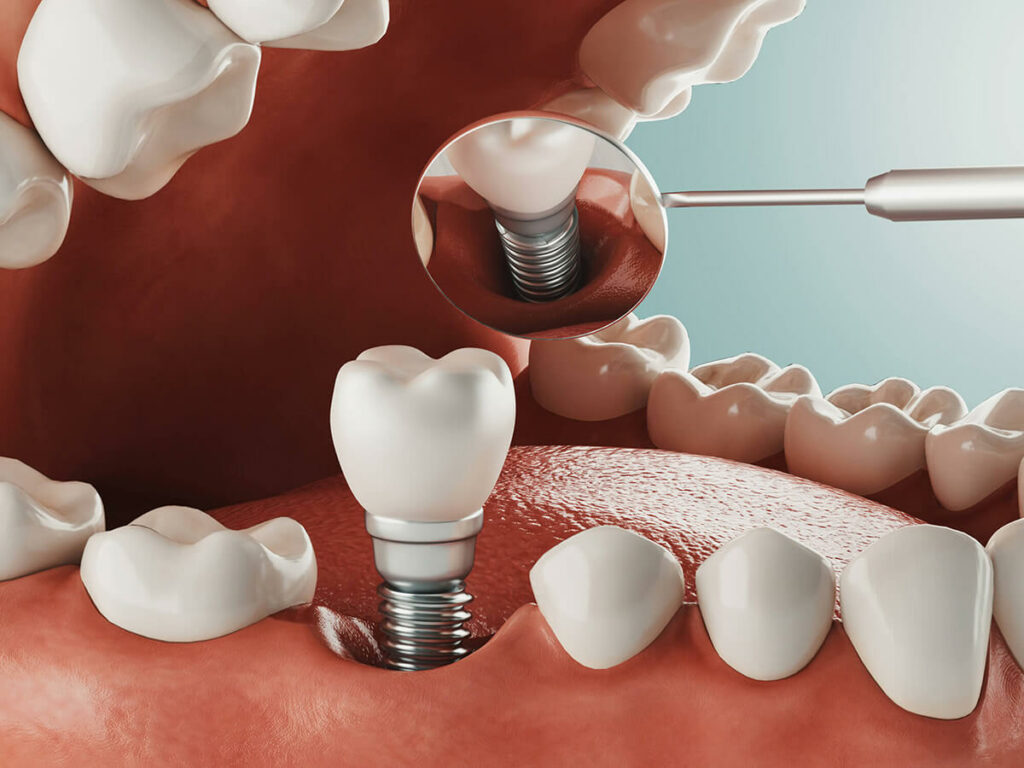Dental Implants
At Westhill Dental, we guide you through every step of the dental implant process, ensuring a seamless journey from first consultation to final restoration.
DENTAL IMPLANTS IN GREENVILLE, WI
Dental implants provide a durable, stable, and natural-looking solution for replacing missing or damaged teeth. Unlike traditional dentures or bridges, implants are anchored directly into the jawbone, offering unparalleled support for artificial teeth. At Westhill Dental, we customize every aspect of the implant process to match your unique needs. From initial consultation to final restoration, we’re dedicated to restoring your smile’s function and aesthetics, ensuring you leave with the confidence to smile, eat, and speak as you would with natural teeth.
Call For Consultation
-
WHAT IS THE PROCEDURE FOR DENTAL IMPLANTS?
Getting a dental implant is a multi-step process that typically involves several stages, including initial consultation, the placement of the implant post, healing time for osseointegration (where the implant fuses with the jawbone), and the attachment of the prosthetic tooth (or teeth).
The process begins with thoroughly evaluating your oral health to ensure implants are the right option for you. Next, the implant post, made of titanium or zirconium, is surgically inserted into the jawbone under local anesthesia or sedation. After implant placement, a healing period is required, during which the implant integrates with the bone – a process that can take several months. Finally, a custom-made crown, bridge, or denture is attached to the implant. Throughout each step, our team at Westhill Dental provides expert care and guidance to ensure optimal results and comfort.
-
WHAT TYPES OF DENTAL IMPLANTS EXIST?
There are two primary types of dental implants used today: endosteal and subperiosteal implants. Endosteal implants are the most commonly used type and are placed directly into the jawbone, serving as a foundation for replacement teeth. They are typically made of titanium and shaped like small screws.
Subperiosteal implants, on the other hand, are placed under the gum but on, or above, the jawbone. This type of implant may be used in patients who have a shallow jawbone and cannot, or do not wish to undergo a dental bone grafting procedure to rebuild it. The choice between these types depends on the patient’s bone density, health conditions, and specific needs, which we at Westhill Dental carefully evaluate during the consultation phase.
-
WHAT ARE THE BENEFITS OF DENTAL IMPLANTS?
Dental implants offer numerous benefits over other tooth replacement options. They provide a permanent solution to tooth loss, closely mimicking natural teeth’ look, feel, and function. Implants are designed to fuse with bone, offering exceptional stability that improves eating and speech and prevents the bone loss that often accompanies tooth loss.
Unlike bridges or dentures, implants do not require altering adjacent teeth, helping preserve oral health. Their durability and natural appearance make dental implants a preferred choice for many patients looking to enhance their quality of life and confidence.
Dental Implant Eligibility
MORE QUESTIONS?
If you have more questions about dental implants, please contact our office, and we will be happy to discuss further.
